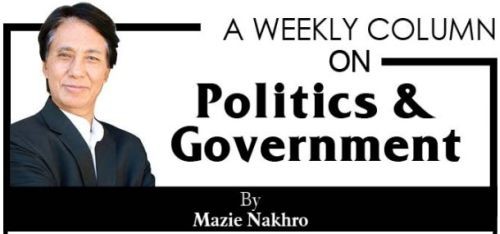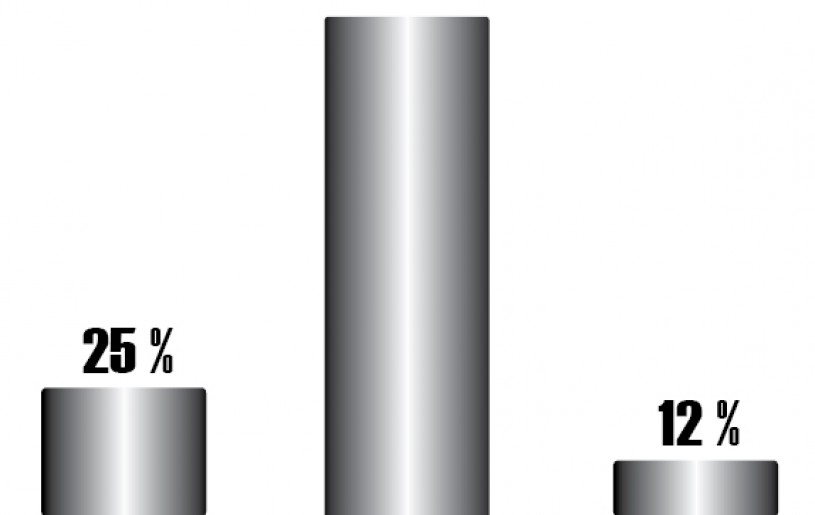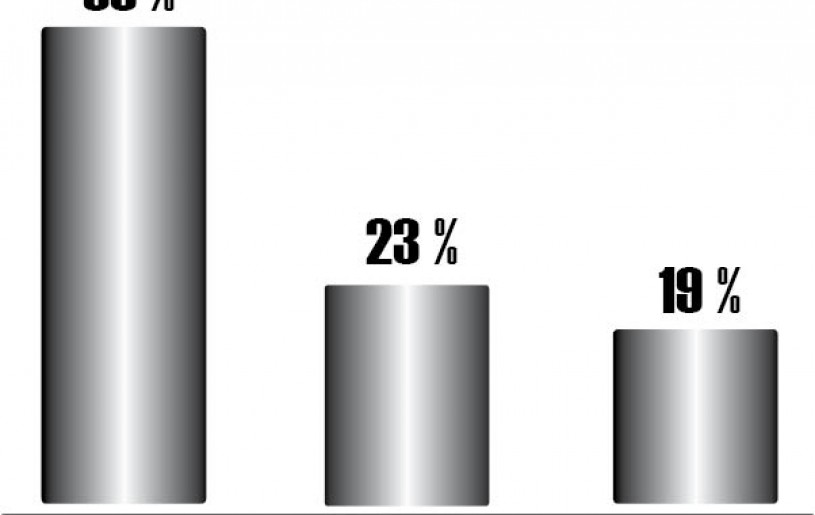
About a year ago, I asked our ex-Chief Secretary of Nagaland, Alemtemshi Jamir, to speak in a Think-Tank meeting to share his view on whether or not the way things are done in our bureaucracy should continue as usual, meaning, whether the status quo should be maintained. To which his wife, Madam Banuo, quickly interjected with a question: “What do you mean by status quo?” As one would expect, their spontaneous reaction was certainly understandable. For that matter, both of them are very nice people. But if we may, let’s probe a little deeper: Could it be possible that they weren’t tough enough to discipline government-abusers under them and they were too complaisant to their political bosses? Or else, how could our bureaucracy in Nagaland go so wrong under their watch?
Real civil service leaders should display real courage by standing up to those who go against the rules and regulations that make a good government. Dubbing civil servants as the “steel frame” of India, Union Home Minister Rajnath Singh recently asked them not to become simply “yes-men” to their political masters. He further added: “If a political executive gives wrong orders, do not be scared to show them rules. Tell him, ‘you are legally wrong’ and do not sign the file.” Indeed, civil servants have governmental authority too. They have the power to take decisions according to law and in the interest of the people.
The power of bureaucracy cannot be underestimated. Although the bureaucrats are, in theory, “servants” of their political masters, they are in a way the actual rulers in the modern state. Bureaucrats have such unmatched knowledge and experience in their specialized domains that generalist politicians rarely have sufficient expertise to question the bureaucrats’ information, recommendations, or actions. Perhaps that was why an eighteenth-century Russian Czar once said, “Not I, but ten thousand clerks, rule Russia.”
Way back in the 1900s, the German sociologist and philosopher Max Weber saw the possibility for the liberation of humankind through bureaucracy or the possibility of dehumanization through the conversion of bureaucratic means into ends. For these reasons, those in bureaucracy should see their role as “servants of the people” who are hired to serve the public. And if they truly serve the people, or work to meet the established goals of the agency, the common people could be easily lifted out of poverty so they can all enjoy a higher standard of living. After all, bureaucrats are supposed to be experts having knowledge, organizations, and funds needed to implement policies, or the missions of the agencies, that benefit society.
Unfortunately, our bureaucracy in Nagaland has distorted itself by making its own survival the terminal value rather than an instrumental one. That’s why many of our civil service workers assume that pursuit of personal ends such as income and job security is everything. In addition, they have dehumanized human relationships by turning the bureaucracy into a system that is too inflexible and impersonal. For instance, the application of rules has often become so rigid that extenuating circumstances tend to be overlooked, and every individual is treated as merely a number. Or in some cases, the common people have to beg for services or almost worship the civil servants to get things done or pay them a bribe simply to expedite a request.
In bureaucracy, roles and duties are protected by tenure, professional standards, and appeal procedures. They enjoy very special career privileges and job security. As for their authority, it is vested in their positions or ranks. So, bureaucrats generally dislike structural changes, because they fear that their “little world” of comfort and power may be threatened. That’s why, bureaucracy, far from directing change, intentionally or unintentionally tend to be defenders of the status quo in most societies.
How then can we change a bureaucracy that has failed or is broken? First, when things go excessively wrong in the bureaucracy, radicals and revolutionaries feel the need to transform the structure of the entire bureaucracy or to abolish it to fulfill their goals. Successful revolutionaries usually replace the old with a new form of bureaucracy. In such a case, those bureaucrats who resist change only end up being the real losers. Second, time is fast changing in favor for a new system of government: more production with less manpower. In an interview on Fox News a few days ago, the multi-billionaire Mark Cuban said, “There’s no stopping technology. Robotic workers are coming. As a result, repetitive jobs will be the most at risk because they cannot compete with robots and technology.” This will certainly cause many government employees to lose their current jobs, because technology-powered machines will take over and do things much faster, much better, and much more...24/7 without any complaint. So, in order to counter this inevitability, today’s government employees would do well to begin preparing for change.
In developing countries, the bureaucracies still have to perform by physical powers such activities as maintaining order, collecting revenues, keeping records, providing public goods and services (e.g., roads, education, health care, etc.), and regulating or controlling factors of production (e.g., growth and distribution of food, transportation, etc.). But a time is coming when the state’s role in society will become more limited---perhaps focusing more on defending one’s country’s sovereignty against external aggression, promoting the country’s interests abroad, maintaining domestic social order, and ensuring the basic safety and freedom of every individual. In doing so, we may witness an increasing popularity of Thomas Paine’s (1737-1809) slogan: “That government is best which governs least.”
In the light of these possibilities, bureaucrats should reflect both their developing needs and external societal changes so that they can begin to serve as forces of change within their administrative enclaves. But the question is, will anyone of them be ready to adapt or lead the way for change?





